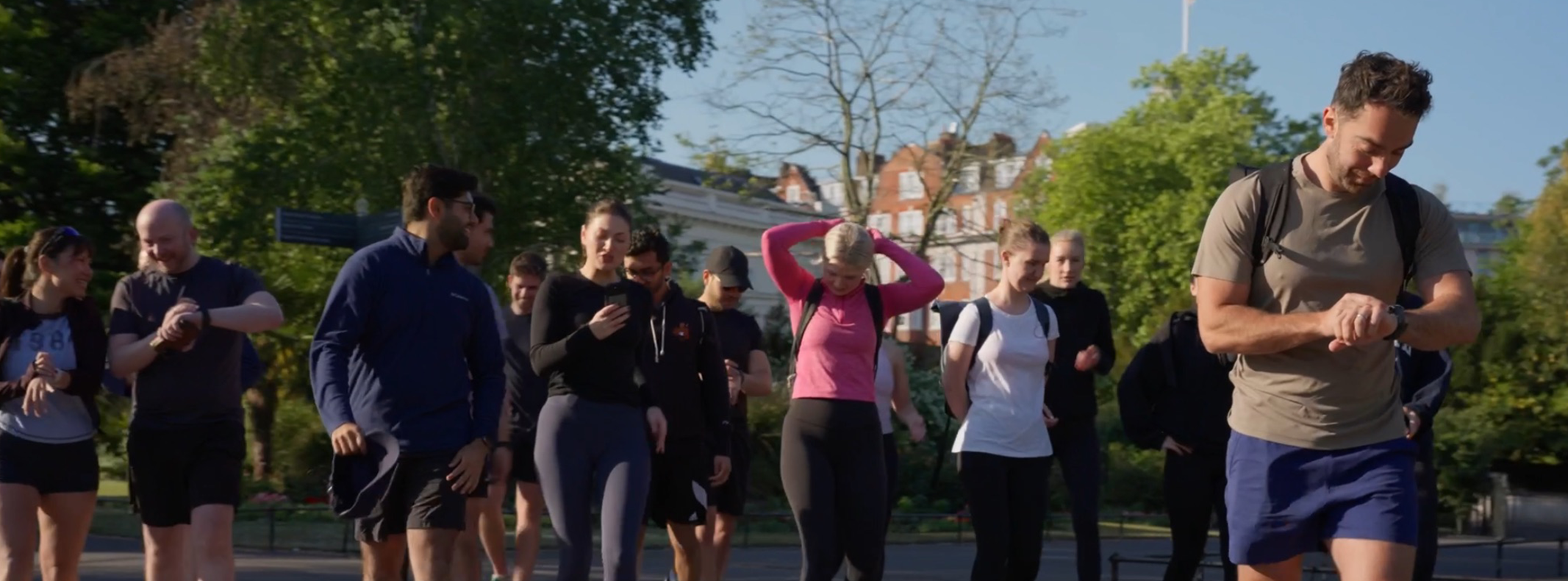Interview with Digital Shadows’ Alastair Paterson: Can a Founding CEO Go All the Way? (3/3)
In the final part of our conversation, Alastair and I focus on hiring, founder CEOs growing a company all the way to maturity, and the advice he’d give a CEO starting the journey.
Alastair, you keep returning to “hiring” as one of the most important ways you’ve addressed your company. Have you been successful in hiring the right talent at each of the company’s stages? If so, why do you think you’ve had this success?
As a company continues to grow, your ability to hire well is one of the key determinants of success and failure. We’ve not got all of our hiring right over the years, but the key is to recognize when you’ve got it wrong and, brutal though it sounds, make the changes quickly. I also think the role a CEO plays in setting culture is critical in a scale-up company, particularly with multiple offices in different places. This feeds into your hiring.
In retrospect, I think one of the smartest things we did was getting a great angel network to invest at the Series A raise. It was a “who’s who” of the security industry in the US and they’ve been very helpful in terms of hiring and retention. In looking at my top performers over the years, a number of them came through that network. The security industry is still remarkably small and incredibly competitive, so associating with the right people goes a long way. Ultimately, your network is incredibly important in getting the right talent in this industry, alongside maintaining your reputation and integrity to attract the best people.
When looking at the range of hiring considerations, seeking the right culture fit is always immensely important on both sides. If you build good rapport with someone in the interview process, it can really carry you through the end when he or she has competing offers. It will also mean they are more likely to gel with your organization if you do get them on board. Developing a personal relationship in the hiring process can be an essential complement to the business reasons a person might join your company. For example, I wanted to make a senior US hire from one of the major industry analyst firms after our Series A. It was a highly competitive situation. The person in question turned out to be a big Arsenal fan. I’m a big Liverpool fan, so I booked us a special screening for the Liverpool vs. Arsenal game when he was next in London. By the end of the game I’d convinced him to join us. (Fortunately, it was a 1-1 game). I’ve always believed that ethics, integrity, diversity and values can have a big impact on why people join you and our VP Sales for the Americas, Maria, was kind enough to write about that here.
Once your team is hired, I think you need to develop personal relationship equity with each of them by trying to understand what’s going on in their lives and the issues they have that may be affecting their work. Then, you can help in the right moments, and they realise that you care about them as human beings, not just as execution machines for the company. No matter how important the company might feel to you, it’s still not as important as family and we all have lives outside work.
Where have you struggled to identify, retain, or empower your talent? What did you learn?
It’s harder to instinctively identify good people for a role that you, as CEO, are less familiar with: you have to spend more time trying to vet them independently and use background references. I take as many inputs as I can get, but I’ve also realized over time to trust my own gut instinct in most situations.
As a company grows, the team composition should change to meet the needs of the new – often very different – stage of growth. As your company goes on a journey, so does your team. Some of them can adapt to the new stage, and some of them can’t. This has proven to be a very difficult aspect of transitioning from one stage to another, but it has to be confronted. In some cases, we were too slow to act on this. Ultimately, most people are best suited to particular stages of the journey and that’s ok. Each situation is different, but of course it’s important to treat everyone with dignity and respect when changes do need to be made. Trying to have a really up-front, authentic leadership team that gets everything out in the open is one way of dealing with this transparently and effectively as the company grows.
No matter how competent the team might be, the critiques of the company are directed at the CEO. When you’re running low on energy and motivation, where do you go to seek inspiration, encouragement, support, or just general fuel in your tank?
That’s an insightful question. The role will almost always be a tough, long one, even if you’re successful. I didn’t think about this much when I first started the journey, but it really is a marathon, not a sprint. I sprinted for the first two or three years and, though great for the company in theory, it was really draining. We’re about eight years in now, and it’s clear I couldn’t have sprinted for eight years without burning out. As a CEO, you have to learn how to look after yourself which I started doing a better job of after around year four.
Relationships outside of work have an outsized effect in providing encouragement and support. In most roles, you get to moan to your co-workers about challenges in your job. It’s difficult when you’re the CEO—there isn’t really anyone else who understands what’s going on, so you just have to deal with it yourself a lot of the time. Thankfully, having a co-founder helps, because you can then talk frankly. It’s essential that you’re doing enough stuff outside of work to depressurize a little. Your entire existence cannot depend on the company – it’s stressful enough without that. I’ve fortunately always been good at handling stress and functioning on minimal sleep while keeping high energy. I’ve been blessed with a good immune system and have never had to take a day off sick from work so far which I’m extremely grateful for, but I put a lot of that down to looking after myself better now.
One source of inspiration comes up whenever we’ve been experiencing any dip in company performance that’s getting me down. I’ve been able to tell myself “we’ve been through quite a few of these. If you wait a few months, you’re going to be feeling very different about whatever’s going on.” And, like clockwork, I have felt different every time as the company has started performing well again. That’s a thought that I lean on more now than I did when we started since we’ve been through so many ups and downs over the last eight years.
An energy-giver for me is that for the last few years I’ve been taking more of my holidays again, since I pretty much didn’t take any at the start of the journey. Also, for me, fitness is big thing – I still play football, I run a lot, and I snowboard as often as possible. It was quite funny coming out to the US; in the first six months I put on five kilos. I suddenly discovered all this amazing calorific food and US portion sizes! Thankfully, I’m back down to where I was now! Staying really active helps lower my stress and generally keeps me healthy and able to deal with the challenges of my role.
There is a common sentiment in the early stage industry that founder CEOs are often not built to grow from the two-person team all the way to the CEO of a mature company, or in some cases just do not wish to do so. Do you think this sentiment holds? Is this a problem… or just a fact of life?
The sentiment does hold in many cases, but not all. Perhaps some CEOs’ brains are wired for ideas and are best at coming up with new concepts but lack the execution discipline to focus beyond the initial stages. That isn’t me—I do come up with ideas, but I’m not the extreme example that is constantly chasing one new idea after another. On the other end, there are those who prefer to grow existing ideas, with little role in idea-creation. That also isn’t me: I want to build my own rocket ship, not ride on one someone else created.
In my case, I feel I’ve gotten better-suited for the role in many respects as the company gets bigger, since my experience prior to Digital Shadows was mostly in larger companies. I’d had a seven-year journey at my previous employer. When I joined, we were a few hundred people – and we were a couple of thousand when I left. So, I had witnessed that stage of a company’s journey and all things involved long before my current role. That helps considerably—I’m familiar with many of the structures and processes that need to be in place as a company grows.
Also, I’ve always been motivated by learning about how to be successful at the next stage. If you find that interesting, then that can sustain you through points of rapid change. I’m a student of ‘the game’ and consume all the best practice, blogs and books on the issues we are dealing with as the company grows. I do think that some CEOs are just not motivated by that aspect and would be on to the next idea at that point. Some also burn out from sprinting through the early stages with no rest, so that’s another reason why many may not be built to lead their companies in subsequent stages. I think this concept of commandos, infantry and police sums up the different mentalities well as a company grows.
As I look ahead, I do ask myself: would I make a great public company CEO? Needless to say, it’s pretty hard to go from zero to public and successfully run the company throughout. Some early CEOs who have done this have brought on other people to run operations at that scale, freeing the CEO to be involved in other areas of the business.
What advice would you give a CEO just starting out on their founding journey?
How long have you got? There’s so much!
I was slightly naive at the start. But I think that was good because I may not have done it if I knew how hard it was going to be, even when you’re successful! I wouldn’t want to crush any of that spirit that you need at the beginning, but I think you need to know that success takes 10 years, not 10 months. You’ve got to be a lifelong learner and be prepared to be a sponge for new ideas and best practices every day.
Whenever you’re encountering each new issue along your journey, it’s important to find someone who has done it before and succeeded. Ask to learn how they handled it and what they learned in the process. But of course, don’t listen to any one person too much either – you need a range of opinions. You’ve got to follow your own conviction, or gut, ultimately. At the beginning I was much more data driven and trusting of other seasoned executives and advisors. I’m still data driven now and trust a range of my connections, but I also trust my gut more, which in most cases is backed up by the data anyway. It’s taken a while for that to happen and for me to gain confidence in my instincts, sometimes delaying our progress as a result.
I think that, of all things, these points have been the most helpful to me along the way. Those, as well as a constant focus on the customer and my team, have kept us on course with more exciting growth and international expansion coming into 2020 and beyond.
Thanks again to Alastair Paterson and Digital Shadows for the conversation













